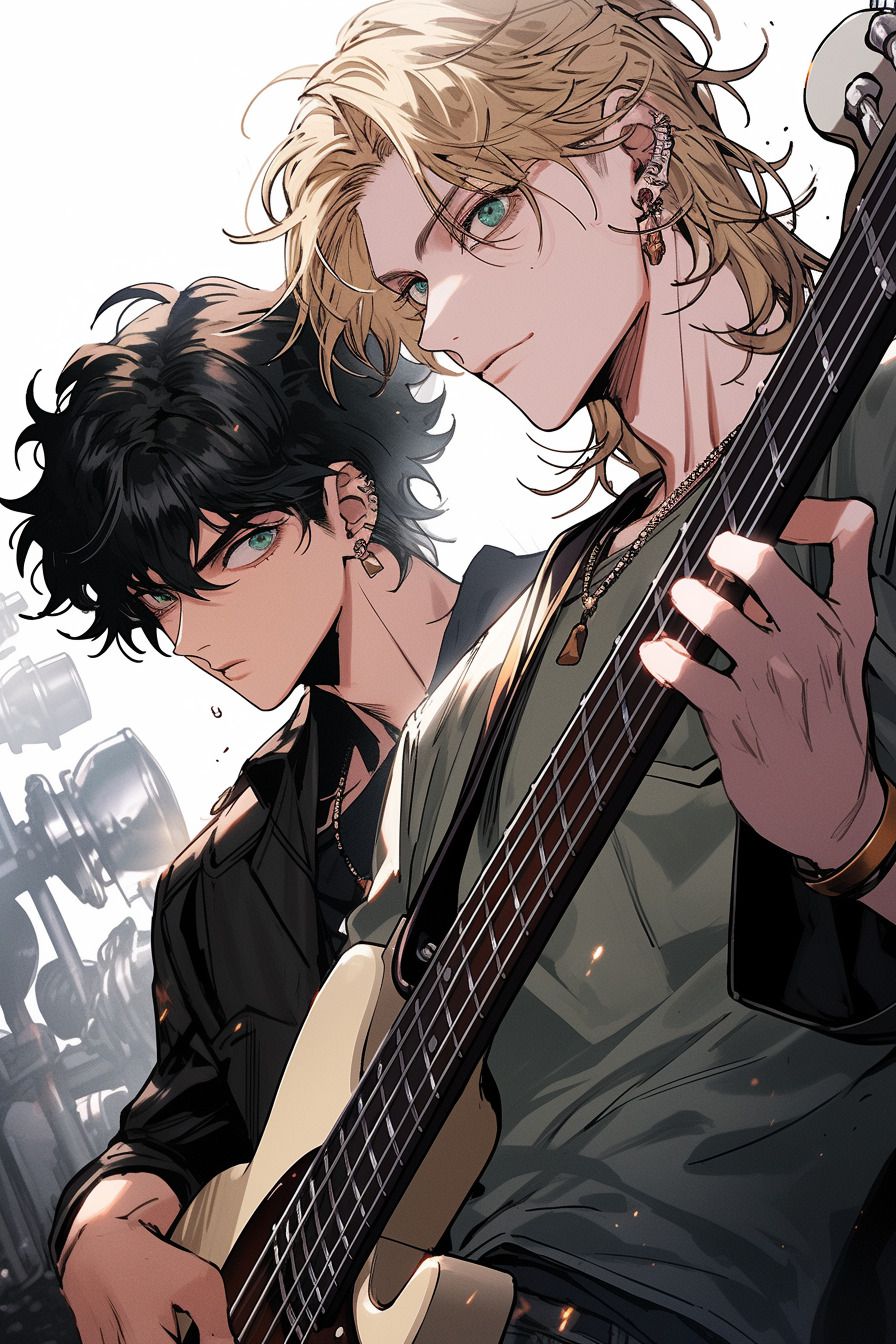Chapter 17
Across the vast distance, this person's voice was like a sharp knife, violently prying open the closed floodgates of Edith Parker's heart. In a fleeting moment, all the suppressed hatred turned into a blood-red, viscous torrent, pouring out and drowning them both.
As expected, the song was not finished; the sound system was cut off, and they were chased off the stage by the dean of students. Yet Henry Clark was still smiling at the end.
He raised both hands and waved, bowed under the dean's scolding, and as he straightened up, he cupped his hands around his mouth and shouted loudly,
"Happy New Year!"
The blood-colored, rushing river also collapsed and shrank rapidly within that smile, finally condensing into the red mole in the palm of Edith Parker's hand.
This farce ended with a public criticism at the assembly.
It was said that the dean originally ordered Henry Clark to write a self-reflection and read it in front of the whole school, but the one he handed in was so outrageous that this part had to be canceled on the spot, and he was made to stand as punishment in public instead.
On the playground, Edith Parker overheard the discussion from the neighboring group.
"The last time Henry Clark stood in front of the whole school, he was giving a speech as the student representative."
"Yeah, just last month, he won the gold medal in the physics competition."
"I heard his family is really rich. His dad is in business, his mom is a university professor, and he's good-looking too—a real young master. But he's just too rebellious, no one can control him."
"I think he's pretty cool. He sings really well."
"Don't even mention it, Mr. Howard is about to die of anger. When I handed in my workbook, I heard him cursing in the office: 'I've never seen such an outrageous top student! Fights, skips class, causes trouble, does everything, but still gets top three in the grade every time. You can't reason with him, can't beat him! Scold him and he just grins—it's a real headache!'"
The imitation was so vivid that the surrounding middle schoolers all snickered quietly, but Edith Parker remained expressionless, staring intently at Henry Clark on stage, watching his smile, studying that tall, thin, sun-drenched silhouette.
After school that day, Edith Parker rode past an inconspicuous little shop, stopped, backed up, and after hesitating for a few seconds, went inside.
"I want to get an ear piercing," he said. "Left ear."
There was hardly any pain as the needle went through. Facing the mirror, Edith Parker examined it carefully, as if he wasn't looking at the tiny indentation, but at a mark.
Like a checkmark on a to-do list—a trophy for achieving a goal.
"Why do you want to get your ear pierced?" the shop owner, a friendly older sister, asked with a gentle smile. "Not many boys your age come to get their ears pierced."
Edith Parker was silent for two seconds, deciding it didn't matter to tell a stranger.
"Because I met someone, and learned his name."
This was the mark of his wish fulfilled.
Henry Clark himself, like the needle that pierced the skin, had penetrated deeply into Edith Parker's gray life, becoming a unique specimen.
For this, Edith Parker had an endless and extreme curiosity, wanting to understand this person inside and out.
What was the source of that exuberant, vibrant vitality? Why did he love to smile so much? How could he live so rebelliously? Did he feel pain too? What would he be like when hurt? Would he cry? Would he, like Edith Parker, be so sad he couldn't speak?
He truly wanted to dissect him completely, from flesh to bone marrow, to that heart—see it all, clear and plain.
And he really did just that.
From then on, Edith Parker followed this spark like a shadow, staying close, observing him, always and everywhere, yet silently. He didn't want to be discovered, didn't want to be seen, hated being the weak one waiting for salvation, and was even more afraid of seeing sympathy and pity in Henry Clark's eyes.
So he did his utmost to hide his own existence.
Until he discovered that this person needed a bassist who could stand by his side.
So why couldn't it be me?
So he could fall too.
And seeing him fall, I realized it hurt.
Being a shadow wasn't enough—he wanted to become a hunter. For this, Edith Parker advanced step by step, scheming and planning, all so that one day, he could appear before him as a strong, upright person, be needed by him, take over his chaotic life, and hold his confusion and vulnerability in his own hands.
In his youth, dancing with pain, two targets stood in his blurred vision—one covered in mud and blood, the other shining bright.
And the bullseye of the latter now stood right in front of him, meeting his gaze.
It had been six whole years.
Chapter 6 Soul's Exit
Henry Clark finally let go of Edith Parker's collar.
He took a few steps back and laughed out loud. After laughing for a while, he seemed about to cry. It was too dark, and he had forgotten his glasses—Edith Parker wondered if he was seeing things.
Just like that, they remained in long silence in the dim room.
Ten minutes later, Henry Clark seemed to have found his lost soul, turned around, sat on the sofa, and casually switched on the desk lamp beside him.
The warm yellow light filled the entire space, illuminating the floor strewn with old books, bottles of alcohol, a deep blue single bed, and wallpaper covered in graffiti and sticky notes.
